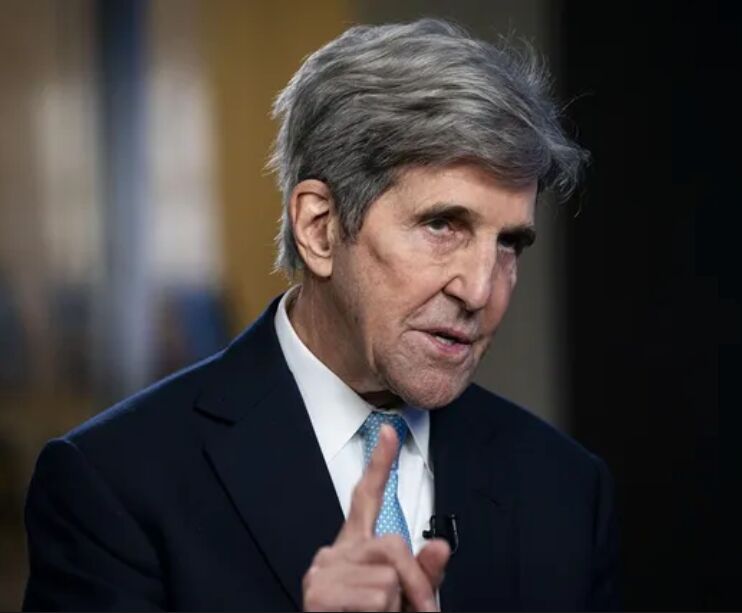John Kerry: No Future U.S. President Can Withdraw from Climate Commitments, Blames Trump for Paris Agreement Exit
In a recent interview, John Kerry emphasized the importance of global cooperation in addressing climate change and called for countries to fulfil their commitments and prioritize clean energy transitions.
In a recent interview with The Hindu, United States Special Presidential Envoy for Climate, John Kerry, emphasized that no future American President can withdraw from climate change commitments now. Kerry placed the blame on former President Donald Trump for leaving the Paris Agreement and rescinding climate financing offers.
He expressed hope for a consensus statement at the upcoming G20 meeting on climate change but did not commit to compromising on language regarding the Ukraine war. Kerry highlighted the progress being made in climate change discussions leading up to the G20 summit and the upcoming CoP28 meeting in Dubai.
He noted that there are already predetermined outcomes, including stocktaking, an adaptation report, and the establishment of a loss and damage fund. He emphasized the need to raise ambition, speed, and quantity in addressing climate change, as well as the importance of a better finance track for emerging economies and less developed countries to transition to renewable energy.
Regarding India's climate targets, Kerry praised the country's ambition to deploy 500 gigawatts of renewable energy by 2030. He expressed support for India's goal and emphasized the potential for cooperation in technology, research and development, and bringing new clean energy technologies to scale.
When asked about the U.S.'s commitment to contribute to the Loss and Damage Fund, Kerry acknowledged that the previous administration's withdrawal from the Paris Agreement delayed progress. However, he assured that President Biden is committed to fulfilling the $100 billion obligation and has allocated funds in the budget for it.
Regarding concerns about future U.S. Presidents reversing climate commitments, Kerry stated that he is confident in President Biden's re-election and highlighted the support of major companies and financial institutions in prioritizing climate action.
He emphasized that the transition to clean energy is inevitable, given the commitment of industries like Ford and General Motors to manufacturing electric vehicles. In terms of reaching a common text on climate change at the G20, Kerry expressed optimism that responsible nations can come together to reduce greenhouse gas emissions and transition away from fossil fuels.
He stressed the urgency of addressing the climate crisis and the need for countries to adhere to international standards. Regarding the G20's joint communiqué, Kerry acknowledged the disagreement over including language on Ukraine but emphasized the importance of speaking out against international law violations.
He noted the need to see the latest iteration of the language before making recommendations. On the subject of NGOs and freedom of speech in India, Kerry recognized the importance of free speech and the ability for people to voice their concerns.
While refraining from commenting on specific situations, he expressed confidence in India's ongoing democratic process and its activists' commitment to working through those processes.
Overall, Kerry's interview highlighted the progress being made in climate change discussions and the importance of global cooperation to address the urgent climate crisis. He expressed hope for a consensus statement at the G20 meeting and emphasized the need for countries to fulfil their climate commitments and prioritize clean energy transitions.




